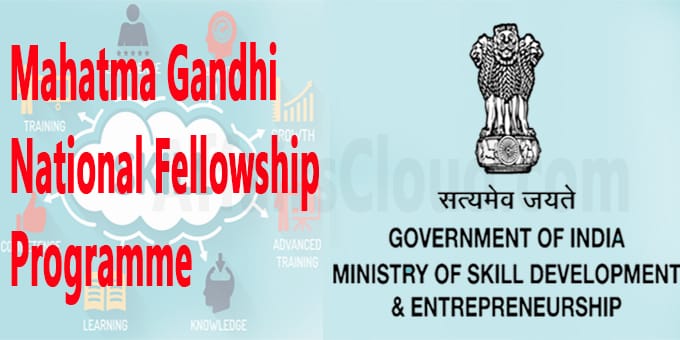Applications Invited For Mahatma Gandhi National Fellowship 2021-23; Details Here
New Delhi: The Ministry of Skill Development and Entrepreneurship has announced the launch of ‘Mahatma Gandhi National Fellowship’ (MGNF) 2021-23 in collaboration with IIM Ahmedabad, IIM Bangalore, IIM-Jammu, IIM Kozhikode, IIM Lucknow, IIM Nagpur, IIM Ranchi, IIM Udaipur and IIM Visakhapatnam. The last date for applying is March 27, 2021.
Students from across the country can apply, only online, provided they fulfill the following requirements:
- Should be a citizen of India.
- Age between 21-30 years at the time of application.
- Graduate in any discipline from a recognized university.
- Preferred work experience of 0-3 years.
- Mandatory proficiency in the Official State Language for district immersion.
The Mahatma Gandhi National Fellowship, 2021-23, has been rolled out nationally in more than 660 districts across India. The programme is being hosted by nine IIMs (IIM Ahmedabad, IIM Bangalore, IIM Jammu, IIM Kozhikode, IIM Lucknow, IIM Nagpur, IIM Ranchi, IIM Udaipur and IIM Visakhapatnam) separately, with IIM Bangalore managing the common admission process.
Program Structure
MGNF is designed to decentralise the process of development – instead of a top-down approach of development, this has the potential to drive the development of the country in a bottom-up approach. It encompasses the benefits of academic inputs from IIMs during the Academic Modules (AMs) as well as the continuous faculty mentorship and the field experience garnered by the Fellows as a part of the District Immersions (DIs).
The AMs focus on management principles, economic development, public policy, and soft skills. They have been designed to address the MGN Fellows’ needs in allowing them to understand opportunities and challenges to enable a flexible, skill-based economy in their district and to identify opportunities and infrastructure needed to support it. The District Immersion module would provide a framework to help the MGN Fellows negotiate the district-specific challenges in the context of documenting institutional weaknesses at the district level, identifying schemes that work well, undertaking detailed resource mapping, and formulating a rigorously researched District Skill Development Plan (DSDP) that chart out a strategy for economic development at the district.


Comments are closed.